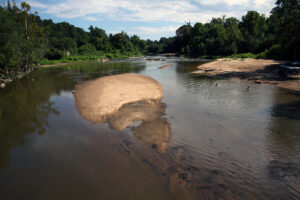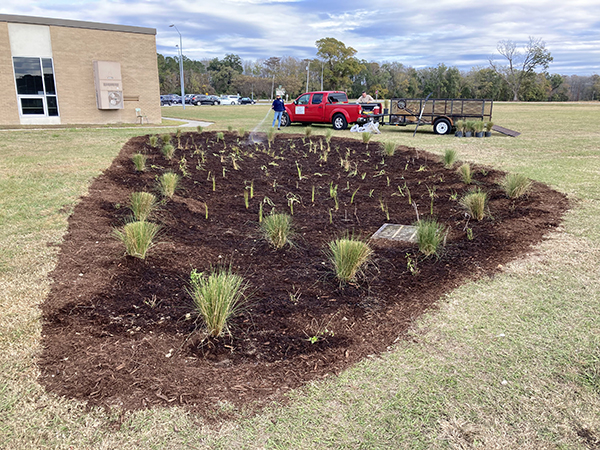News
Rain garden to alleviate riverbank erosion
Environmental, Sound Rivers, Stormwater, Stormwater Issues, Stormwater Restoration Projects, Stormwater Runoff
Posted on December 1st, 2022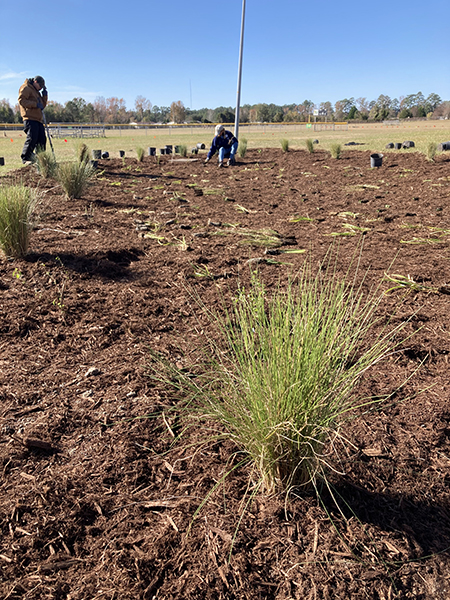
 Sound Rivers’ Program Director Clay Barber embarked on new project this fall, this one to prevent stormwater runoff from eroding the banks of the Neuse River at West Craven Middle School.
Sound Rivers’ Program Director Clay Barber embarked on new project this fall, this one to prevent stormwater runoff from eroding the banks of the Neuse River at West Craven Middle School.
“We chose to do a rain garden there, because the rain garden is built right on top of a storm drain which leads to a pipe system that encircles the school, and it all leads to one outfall into the river, which is severely blown out and eroded,” Clay said. “Water is bursting out of the outfall pipe so fast and powerfully, it’s causing a giant hole in the ground, which leads to sediment issue. It’s literally leading to land loss.”
The project represents the first stormwater control measure on a campus located only a couple of hundred yards from the Neuse River, right next to the Spring Garden boat ramp.
Funded by a Bosch Community Fund grant, designed by Kris Bass Engineering, Sound Rivers enlisted the services of Wilmington-based Rainwater Solutions to install the rain garden. But it was a longtime teacher who set the project in motion at West Craven Middle School.
“They’re one of our newest campus partners and a longtime science teacher, Joshua McGhe, has been our champion and contact for building excitement about the rain garden,” Clay said.
The 1,300-square-foot rain garden now sits atop an existing storm drain that was elevated to ensure water could initially pond around the drain.
“The purpose is always to slow stormwater down, spread out and let it soak it in,” Clay said. “We want to prevent as much water from entering the concrete pipe network as we can, and instead retaining it so that it can be naturally treated by soaking into the ground.”
In November, Rainwater Solutions built up the storm drain and created a large depression filled with topsoil and triple-shredded hardwood mulch — chosen because it’s heavier, does not float or blow away, and is native hardwood good for native plants, Clay said.
In addition to slowing down the campus’ stormwater, the rain garden has other benefits: the native species planted there this week will soak up water and nutrients, as well as attract birds, insects and other pollinators, plus it means less grass to cut for the maintenance crew.
Clay said this project could be one replicated to prevent stormwater flowing directly into the system draining the entire campus.
“As fast as we can build them, we could build one around each storm drain on the property, so that’s five more projects,” he said.
Related News
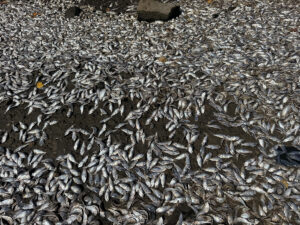
Neuse fish kill expected to extend beyond holiday weekend
July 3rd 2025
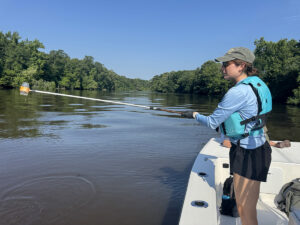
Swim Guide fails prompt Maple Cypress investigation
July 3rd 2025

Riverkeeper, town partners root out source of Smithfield sediment pollution
July 3rd 2025
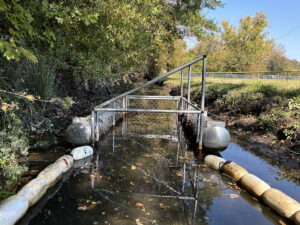
Trash trap No. 12 approved for Smithfield
July 3rd 2025

Sunset River Paddle fundraiser boosts Water Quality Fund
July 3rd 2025

Riverkeepers host quarterly Water Watch meeting
July 3rd 2025
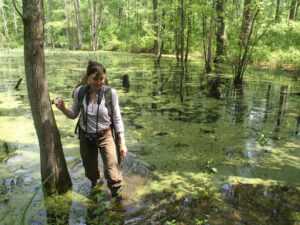
Public hearing will determine the fate of many NC wetlands
June 26th 2025
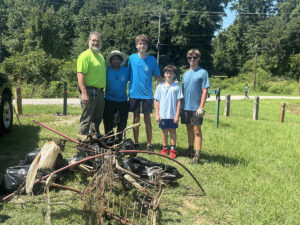
Clayton gets first official trash-trap cleanout
June 25th 2025
